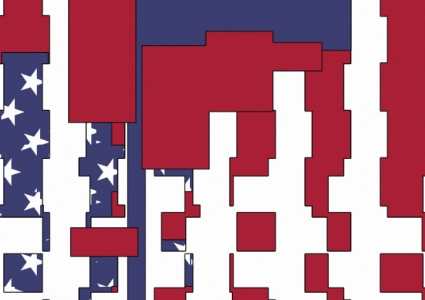Polling

Suggest an important issue not listed in this sub-category (). (Maximum 60 Characters)
Redistricting

Redistricting is the process of redrawing electoral district boundaries to reflect population changes identified every 10 years by our census. Gerrymandering involves the deliberate manipulation of political boundaries for electoral advantage, usually to benefit incumbents or a political party. Partisan state legislatures using improved software now design districts which pack opponents into as few districts as possible, leaving district maps that are skewed towards one party.
Critics claim gerrymandering is responsible for the current gridlock in Congress because a small number of voters have elected a large number of representatives. In our last presidential election, gerrymandering was cited as the reason one party was awarded more Congressional seats while receiving fewer votes. They say our Congress “does not look like our nation” because congressional districts have been so drastically altered. Each state uses its own standards for creating partisan districts. In the states where the legislature is in charge of redistricting, the potential for gerrymandering often makes this process very contentious. Redistricting is often contested in court by the losers of the new plan. A small number of states carry out congressional redistricting by an independent or bipartisan commission, with some of these plans requiring the approval of the legislature.
Pending Legislation: Reintroduction of H.R.4307 - John Tanner Fairness and Independence in Redistricting Act (117th Congress 2021-2022)
Prospective Sponsor: Rep. Steve Cohen (TN)
Critics claim gerrymandering is responsible for the current gridlock in Congress because a small number of voters have elected a large number of representatives. In our last presidential election, gerrymandering was cited as the reason one party was awarded more Congressional seats while receiving fewer votes. They say our Congress “does not look like our nation” because congressional districts have been so drastically altered. Each state uses its own standards for creating partisan districts. In the states where the legislature is in charge of redistricting, the potential for gerrymandering often makes this process very contentious. Redistricting is often contested in court by the losers of the new plan. A small number of states carry out congressional redistricting by an independent or bipartisan commission, with some of these plans requiring the approval of the legislature.
Pending Legislation: Reintroduction of H.R.4307 - John Tanner Fairness and Independence in Redistricting Act (117th Congress 2021-2022)
Prospective Sponsor: Rep. Steve Cohen (TN)
Poll Opening Date
March 27, 2023
Poll Closing Date
April 2, 2023
Democracy Rules respects the privacy of your information.
See PRIVACY STATEMENT
See PRIVACY STATEMENT